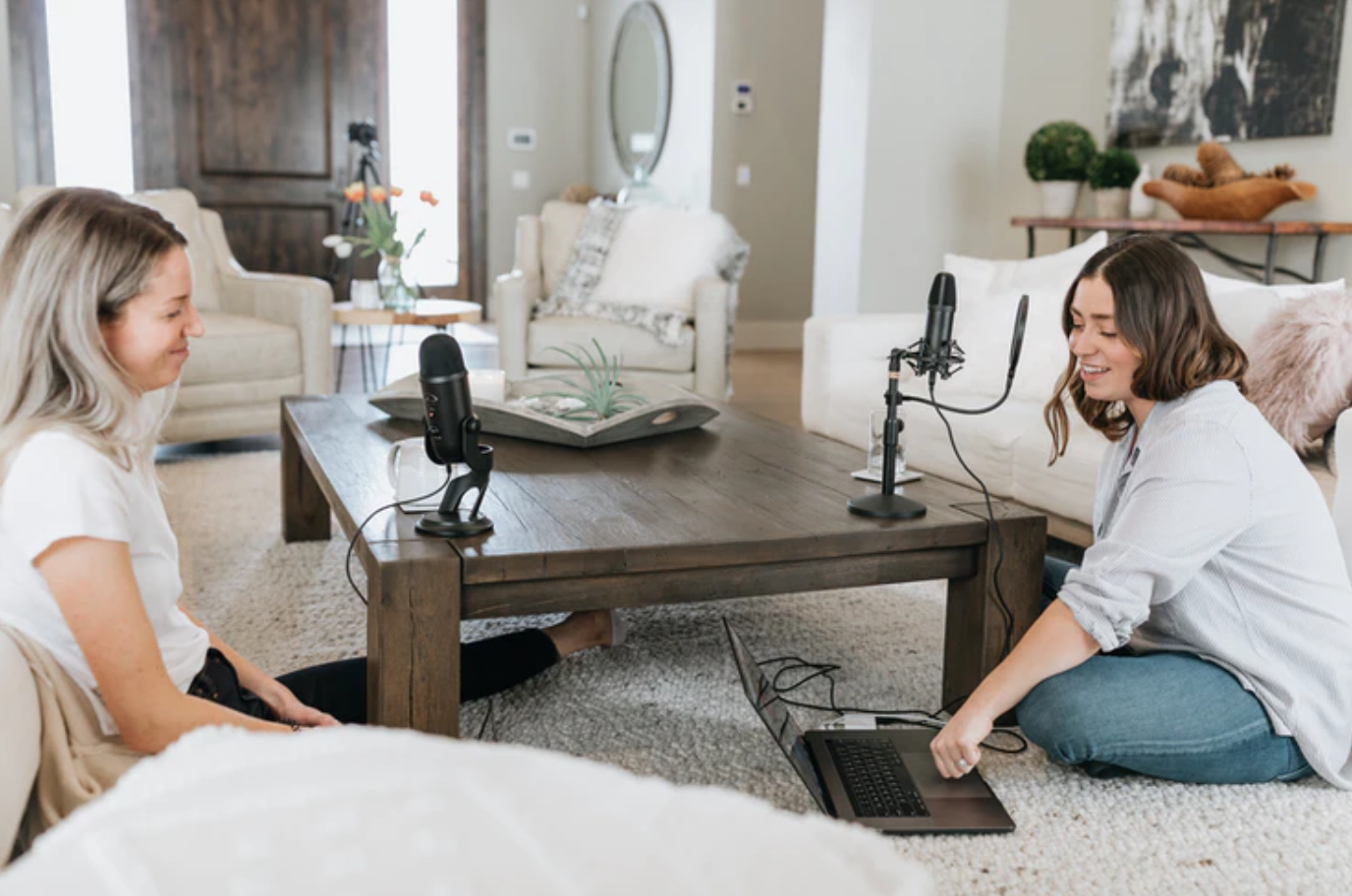If you want to help your podcast flourish and you have the financial means, you can invest a sum of money in online advertising such as Google ads or social media ads and target your ideal listeners.
Podcasts are the on-demand radio-like shows taking over our time, and for a good reason. These audible shows appeal to us all. There is a podcast show for you, whether you are a bookworm, a health freak, a minimalist, or a hard-core history fan.
Brands, media companies, and hobbyists use podcasts to expand their brand, gain a wider audience, connect with their readers, and talk about what they love. With new technology, it is far easier to produce a podcast these days. The following is a step-by-step guide to creating a podcast.
Identify your goals
The first step to your podcast production is to identify the goal of your podcast. Why are you starting this podcast? Do you want to be recognized as an expert in your field? Do you want to increase sales on your blog? You might want to find like-minded people who enjoy your unusual hobby or spread an important message. Whatever your goal is, it is essential to identify it so that each episode reflects the purpose of your work. Write your goal somewhere where you can see it often.
Find the theme
Podcasts are broken down into several episodes, but all episodes have a common theme. It is vital to stick to this theme as your audience will be disappointed if you veer off-topic drastically. So if your podcast is about literary fiction, it would be unwise to talk about celebrities or health. Identifying your theme is a way of staying on track and lure the right audience to your podcast.
Find a good name
Naming your podcast requires time and the help of the people you trust. Come up with names that reflect the theme of your podcast and ask those around to share their thoughts. Did they understand what the theme of your podcast is by the name? They must do as there are thousands of podcasts online, and listeners will navigate through playlists fast. Standing out with a great name that includes a keyword is essential. Some examples of great podcast names include Hardcore History and Healthy-Ish.
Use keywords
Experts recommend you avoid keyword stuffing, but you can use them in the title or description of your podcast. Listeners will look for new podcasts by searching keywords. For instance, a person looking to get fit will use keywords like healthy, while someone looking for the next great read will type in read or books.
Structure your podcast
Your podcast needs a skeletal framework where you determine its format. You may be the only one speaking, or you plan on having weekly or monthly guests. Do you prefer a scripted podcast or not? Will there be interviews or improvisation? Determining the structure of your podcast will help you prepare your episodes in advance.
Figure out the length
There is no optimal length for a podcast. Only you can determine the ideal length, depending on the theme you will be addressing. Some podcasts are two hours per episode, others stick to the one-hour format, and many are even less.
Plan a schedule
Sticking to a schedule is ideal as your audience will want you to be consistent. If your podcast is a full-time job, you can afford to produce an episode daily or weekly. However, if you have another job or need to conduct extensive research to make an episode, you may need to stick to a monthly episode.
Prep your equipment

Thanks to advancing technology, you don’t need to spend a great deal of money to start a podcast. You can easily record your first episode with your phone and a pair of headphones. However, if you want your sound to be top-notch, invest in microphones, an audio interface, a shock mount, and a computer.
Buy the software
After finishing the recording, you need software to edit and refine your podcast. The good news is there is excellent podcast software on the market that is either free or inexpensive. These include Audacity, Adobe Audition, and GarageBand. If your podcast format includes interviews, you will need software to conduct long-distance interviews. Experts recommend using Zoom over Skype as the audio quality is better.
Find the perfect recording spot
Technically, you can record a podcast on the go, especially if you are using your phone. However, if you want quality, find a large room with minimal distractions to have a better-sounding podcast. If your only option is a tiny room, use furniture, carpets, and other materials as reflective surfaces to absorb the sound.
Record your first episode
It might take you a few episodes until you relax your voice. If you have planned improvisation for your podcast, but you want to boost your confidence, try writing a podcast outline, so you have a loose plan to guide you. An outline is beneficial if you have a co-host to remain on the same page.
Edit and upload the podcast
The editing session is where you will insert any ads if you use advertising and add a pre-recorded introduction and conclusion. Some of the top podcasters also add a musical prelude to their podcasts. Editing involves technical work, which can frustrate even the best podcasters. If you cannot afford someone to edit the podcast for you, don’t be discouraged by the complex process. The software you choose will help you edit with less difficulty, so you produce a great-sounding episode. Once you do this, upload your episode for the next phase of the production process.
Once you become proficient in these steps, you can move on to other production work to refine your podcast. You can hire someone to create the artwork for your podcast and another to write your show notes. Work to promote your podcast is essential as well. It is vital to share your episode with others on social media and find niche groups related to the theme of your podcast.
Choosing a category for your podcast will help listeners find it more efficiently, as it is to get listed in top podcast apps, including Spotify, Apple Podcasts, and Google Podcasts. To get listed, you must submit your podcast in their directories, fill out the details accurately and wait to be approved. If you want to help your podcast flourish and you have the financial means, you can invest a sum of money in online advertising such as Google ads or social media ads and target your ideal listeners.


Join the conversation!